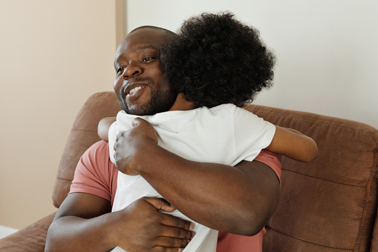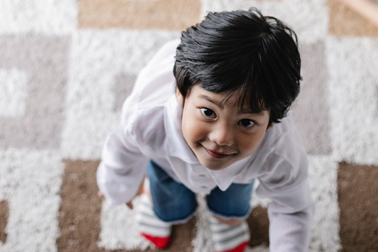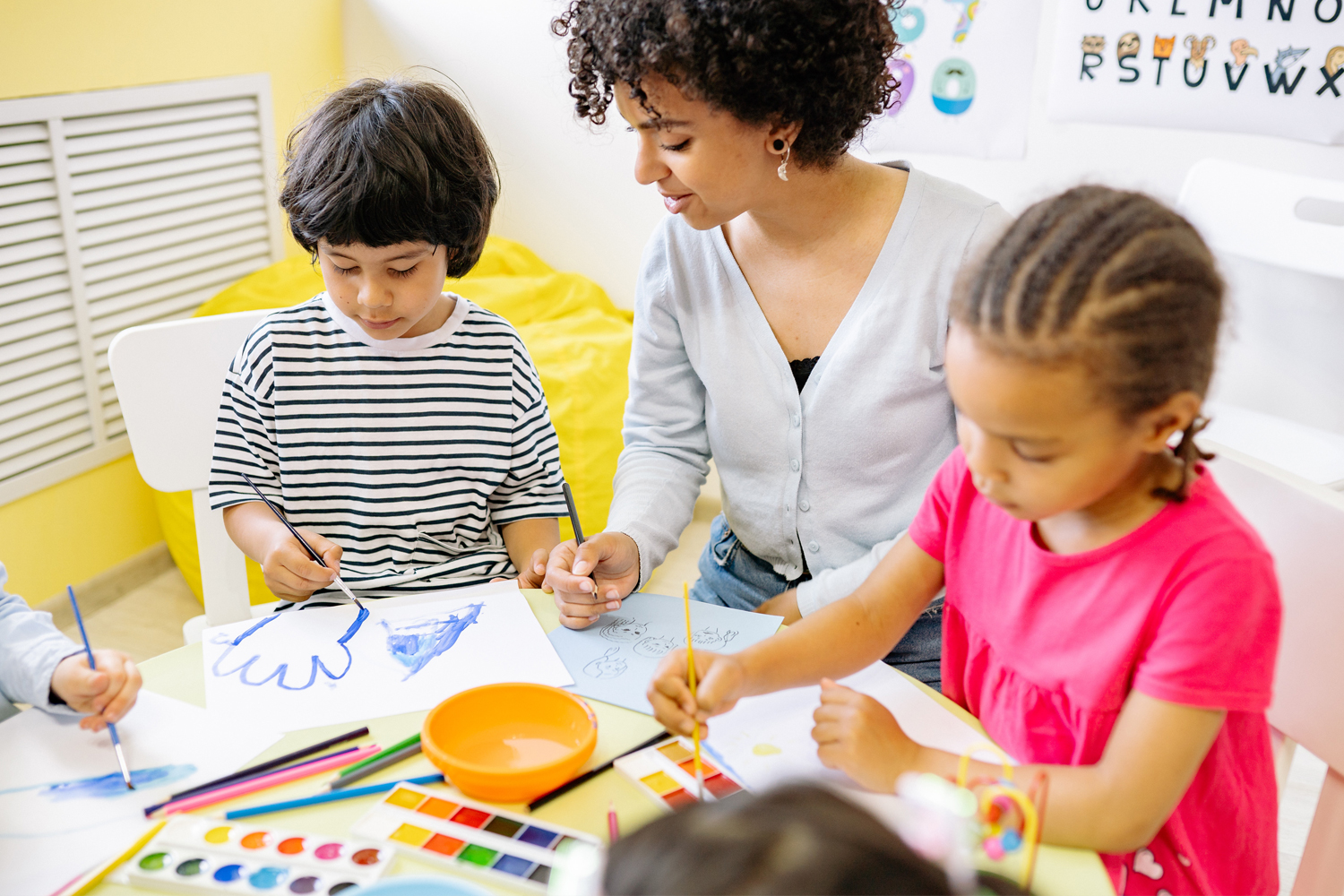In the past year, our everyday lives have shifted and have been impacted by the COVID-19 pandemic in multiple ways. Our schedules and routines have been disrupted, our social interactions have become limited, and the uncertainty leads to feelings of stress, frustration, and anxiety. This is a natural response to stress and is actually expected during difficult times. We all feel it, including our children. These emotions can be presented in varying ways and for our children specifically, these emotions can be presented through regression.
What Does Regression Look Like and Why Does It Happen?
Regression in our children can feel like a disruption or a step back of developmental skills and can look different for each child. Some examples of regression can include changes to daily living such as sleep disruption, changes to eating patterns, more potty accidents, and a decrease in independence. It may also seem as if acquired language or behavioral skills have been disrupted. Children may appear to have a lower frustration tolerance, may become more attached to you, or you may have noticed changes in their behavior and mood. Stress has many effects on brain function, thus hindering rational thinking and behavior. We can see this in ourselves and our own responses to stress physically, emotionally, and mentally. These responses are our body and mind’s way of telling us what’s happening and what we need at this moment to feel a sense of relief and comfort. This is the same for our children. Regression can be looked at as an unconscious way of telling us that our kids need a little extra love, comfort, and security right now.
How Do I Help My Child During This Time?
Self-Awareness of Your Own Stress: Awareness of your own stress and anxiety during this time is key to helping your child. Normalize the fact that it’s ok to feel this way and that it’s ok to take a break! This puts you in a better position to manage regressive behaviors calmly. As parents and caregivers, we are so quick to want to fix and provide for our kids but it can be hard when we aren’t taking care of ourselves first. I like to compare it to safety precautions when you’re on a plane. The first thing flight attendants tell their passengers is for adults to put their mask on first and then their child’s mask when there is an emergency. Managing your own stress and anxieties is great modeling for your kids and puts you in a better position to show love, patience, support, and all the other things your kids may need right now. TAKE A DEEP BREATH and remember that you are doing your best. Recognize your own stress and make a positive self-care plan first.

Validate your child’s feelings: Change can be hard. It’s unpredictable and disturbs our routines which sets the tone for our kids presenting with any challenging or regressive behaviors. Respond to the emotions, not the behaviors, and show empathy during this time. Kids just want to be heard. Phrases like “It is really sad that we can’t go to the park right now,” or “It is frustrating when we can’t play with our friends right now,” focuses on the emotion rather than the behavior. Understand and accept the high emotions your child may be feeling right now and that the behavior is their way of communicating to you that this is how they are feeling and what they may need. This normalizes emotions since we all experience them throughout the day. Validation teaches kids the importance of self-awareness but also self-acceptance of all feelings.
Communicate with your child if and when it’s appropriate: This can also be a time to relate to your kids if you’re experiencing the same feelings and can be a teaching moment for our kids. Provide simple information in a developmentally appropriate way regarding COVID-19 and reassurance that grown-ups are trying to keep kids safe. You can keep it open ended and ask your kids what they know about the pandemic, what are some of their worries, and if they are missing anything right now. You’d be surprised with how much can come out of your little human! Meet any worries and statements with kindness and without judgement. It also allows our kids to feel empowered and feel a sense of control during a time when they feel like they aren’t in control of anything.

Fall back on providing unconditional love and strengthening your relationship: Knowing that regressive behaviors are common during high times of stress, now’s the time to step back from high demands and expectations and instead fall back on providing unconditional love, affection, big hugs, support, and kisses. Strengthening your relationship during this time will have long term effects in the future. Think about some different options you and your child can do together to help with these feelings. This can include having video chats with others, drawing pictures, taking walks, engaging in a task at home (kids love to be helpers!), having a picnic, going on a nature walk, and any project or activity that focuses on the relationship.
Practice gratitude, mindfulness, and asking for help: This is truly a tough time for everyone and it’s important to ground yourself and to embrace the big and small moments within yourself as a parent and within your kids. Practicing mindfulness and gratitude in daily interactions helps ease stress physically, emotionally, and mentally. Remember that there are always supports around you and that it’s okay to ask for help, especially during this time. We’re able to practice what we preach with our children and teach them that even the strongest people need the support to lift them up, especially our parents! Connect with other parents or with your Blue Bird therapy team as we are more than happy to provide that support for you and your children! It takes a team to support each other during these trying times and we’re here for you!

Blue Bird Day fosters socialization, sensory regulation, and pre-academic learning in children ages 2-7 years in therapeutic rotations that simulate preschool and kindergarten settings. Our compassionate therapists practice a relationship-based and family-centered approach, provide parent training, and collaborate on goals and individualized intensive treatment plans for your child.
We believe in a collaborative and multi-disciplinary team approach to therapy. A team of occupational therapists, speech-language pathologists, dietitians, developmental therapists, behavioral therapists, physical therapists, and therapeutic assistants are created for each child to ensure child and family are fully supported and the best possible results are achieved.
Options for individualized, group and virtual therapy sessions are available as well.
Want to learn more or you have a specific question? Feel free to connect with us here!



